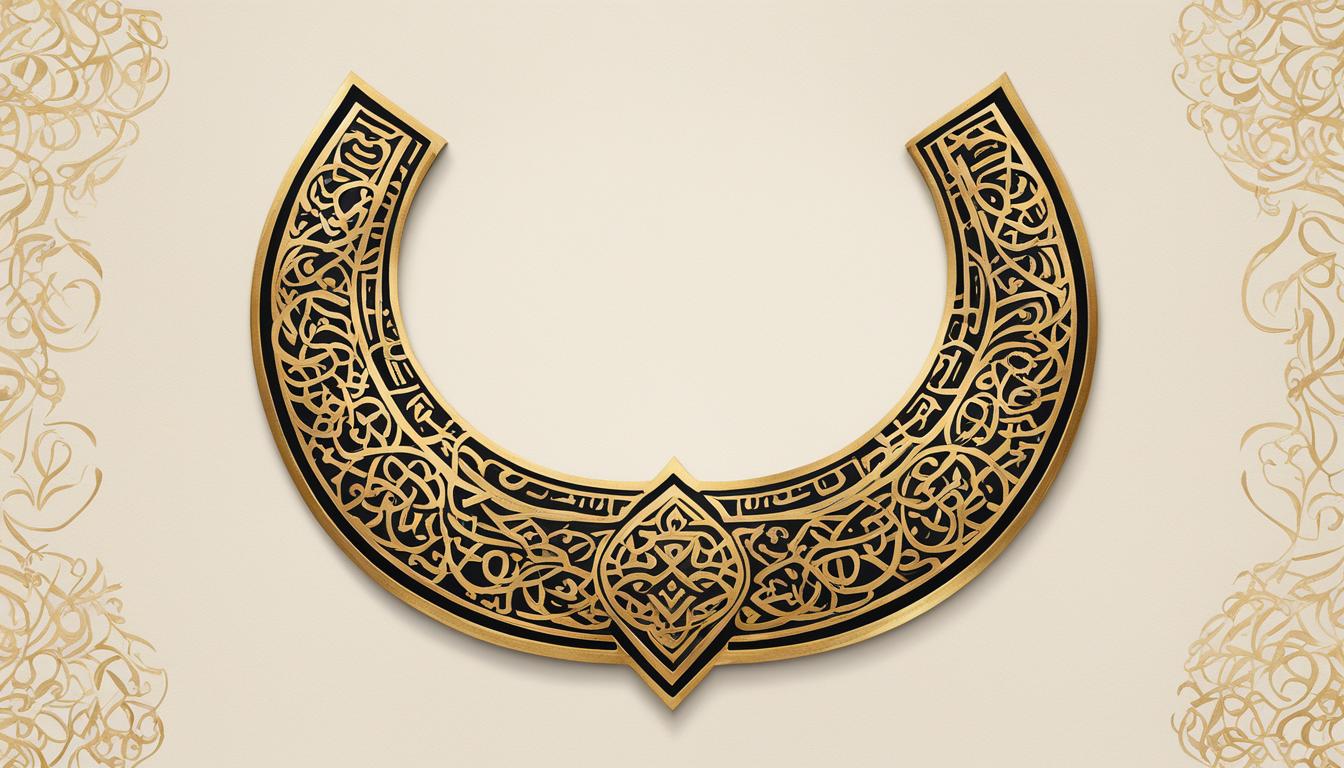Originally posted on January 1, 2024 @ 6:10 am
Arabic is a fascinating language spoken in 25 countries. Whether you’re planning a trip to an Arabic-speaking country, connecting with Arabic speakers in a professional setting, or simply want to expand your language skills, learning some basic Arabic phrases can be both practical and rewarding. In this easy phrase guide, we will explore ways to express good luck in Arabic and various phrases you can use to wish someone well.
Key Takeaways:
- Learn how to say “good luck” in Arabic to express your wishes for someone’s success.
- Discover different Arabic phrases that convey well-wishes and positive sentiments.
- Understand the cultural context and appropriate situations to use these expressions.
- Expand your repertoire of polite and friendly greetings in both formal and informal settings.
- Gain insight into basic Arabic phrases for everyday interactions, asking for help, talking about your career, and expressing love.
Formal Arabic Greetings
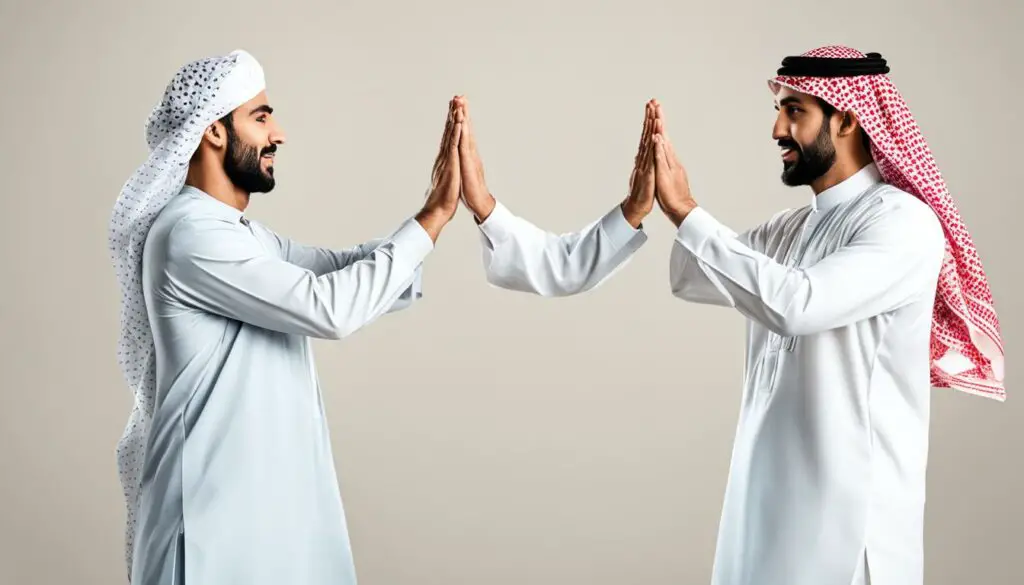
In formal situations, using the appropriate Arabic greetings is essential for showing respect and establishing professional connections. The most common formal greeting in Arabic is “As-salamu alaikum,” which translates to “Peace be upon you.” This phrase is widely used in Muslim-majority countries and sets a respectful tone for conversation.
When using “As-salamu alaikum” as a formal greeting, it is customary to receive the response “Wa-alaikum as-salam,” which means “And peace be upon you.” This exchange acknowledges the mutual desire for peace and goodwill.
The formal Arabic greeting “As-salamu alaikum” signifies the importance of peace and respect in Arabic culture. It is a sincere way to show your goodwill and establish formal connections with others.
Additionally, when greeting someone formally in a business setting, it is customary to use honorifics and titles to show respect. Addressing someone by their professional title, such as “Doctor” or “Professor,” followed by the appropriate Arabic greeting, demonstrates proper etiquette.
In certain formal situations, it may also be appropriate to greet someone using “Marhaban” or “Ahlan wa sahlan,” which mean “Welcome.” These greetings can be used to acknowledge someone’s presence or arrival in a distinguished setting.
Overall, understanding and using formal Arabic greetings appropriately is an important aspect of professional etiquette. It shows respect, fosters positive interactions, and helps establish a strong foundation for meaningful conversations and business relationships.
Formal Arabic Greetings Example:
| English | Arabic | Pronunciation |
|---|---|---|
| Hello (Formal) | As-salamu alaikum | Ass-sah-lah-moo ah-lah-ee-koom |
| Response to Hello (Formal) | Wa-alaikum as-salam | Wah-ah-lah-ee-koom ass-sah-lam |
| Welcome | Marhaban / Ahlan wa sahlan | Mar-ha-ban / Ah-lan wah-sah-lan |
Informal Arabic Greetings
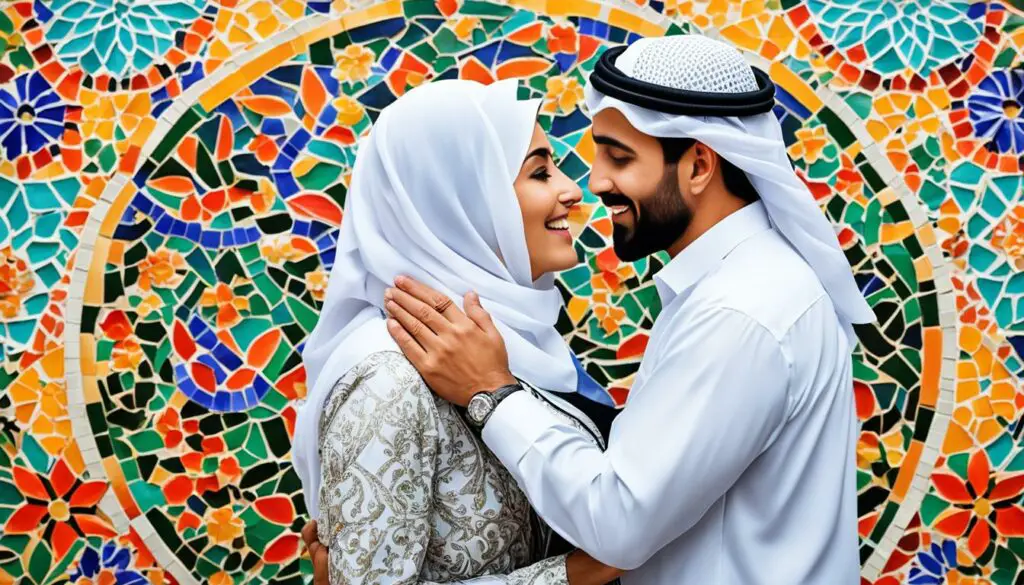
In informal settings, it’s important to know how to greet others in Arabic in a more casual and friendly manner. One commonly used phrase is “Ahlan”, which means hello. This informal greeting is often used among friends and acquaintances to create a warm and welcoming atmosphere.
When someone greets you with “Ahlan”, it’s customary to respond with “Ahlan beek”, which means “Welcome”. This friendly response lets the person know that you appreciate their greeting and are happy to see them.
“Ahlan” is a versatile phrase that can be used in various informal situations, from casual meetups with friends to informal gatherings. It’s a great way to initiate a friendly conversation and make others feel comfortable.
If you’re greeting someone for the first time or meeting someone new, you can use “Ahlan” to break the ice and start the conversation on a positive note. It’s a simple yet effective way to show friendliness and establish a connection.
Using informal Arabic greetings like “Ahlan” allows you to engage in relaxed and informal conversations, creating a friendly and welcoming atmosphere. By mastering these expressions, you can easily connect with Arabic-speaking friends and acquaintances on a more personal level.
Basic Arabic Phrases
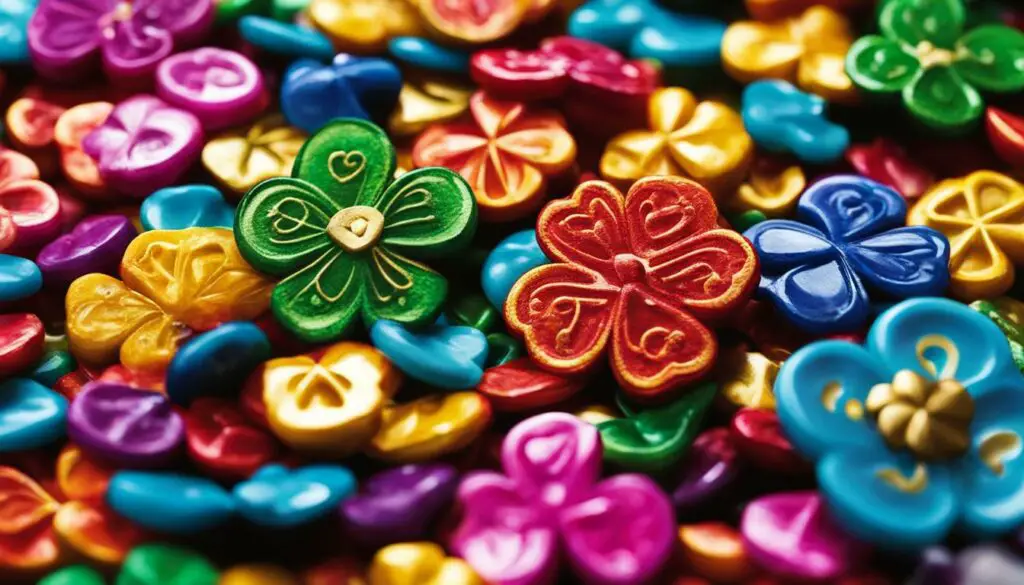
Knowing some basic Arabic phrases is essential for everyday interactions. Whether you’re a traveler or looking to engage in social conversations, these phrases will come in handy. Take a look at some of the most essential Arabic phrases below:
- “Ma ismuka?” – What’s your name?
- “Ismi…” – My name is…
- “Kayfa haluka?” – How are you?
- “Ana jayyed” – I’m fine
- “Law samaht” – Please
- “Shukran” – Thank you
- “Afwan” – You’re welcome
- “Ana asef” – I’m sorry
These basic Arabic phrases will help you navigate various social situations with ease. Whether you’re introducing yourself, asking about someone’s well-being, or expressing gratitude, these phrases will enable smoother interactions. Learning these essential Arabic phrases will not only enhance your cultural understanding but also foster meaningful connections with Arabic speakers.
Asking for Help in Arabic
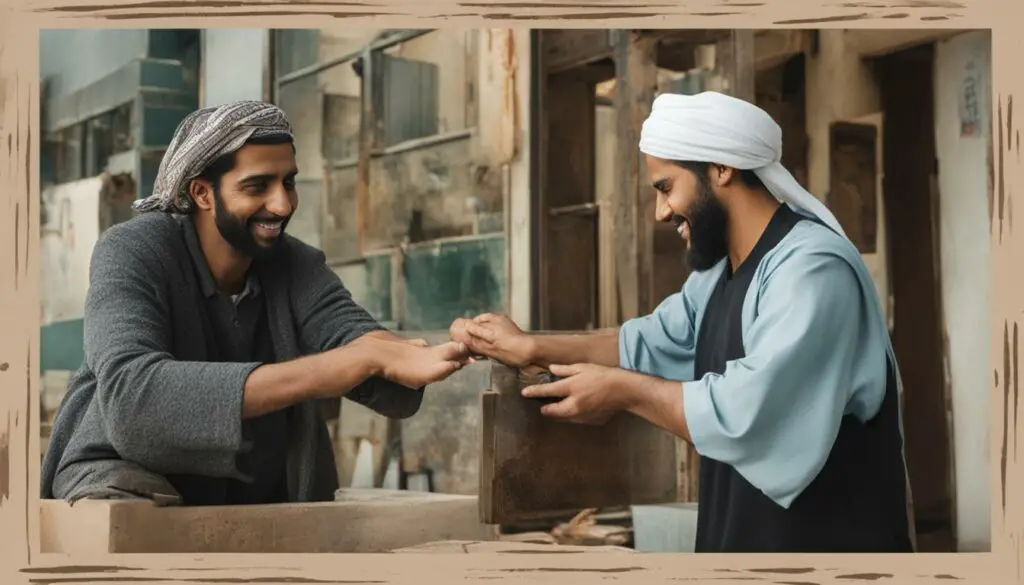
In situations where you need assistance, knowing Arabic phrases can be helpful. Below are some common expressions to seek help:
1. Where is the bathroom?
Arabic: Ayna al-hammam?
2. Where is the service station?
Arabic: Ayna mahatat al-khedmah?
3. Help!
Arabic: Mosa’adah!
4. I don’t speak Arabic.
Arabic: Ana la atakallamu al-arabiyya.
5. Could you speak slower, please?
Arabic: Hal yumkinuk altahaduth bishakl ‘abta min fadlika?
When in need of assistance, don’t hesitate to use these phrases to communicate your needs effectively.
| Arabic Phrase | English Translation |
|---|---|
| Ayna al-hammam? | Where is the bathroom? |
| Ayna mahatat al-khedmah? | Where is the service station? |
| Mosa’adah! | Help! |
| Ana la atakallamu al-arabiyya. | I don’t speak Arabic. |
| Hal yumkinuk altahaduth bishakl ‘abta min fadlika? | Could you speak slower, please? |
Common Arabic Greetings
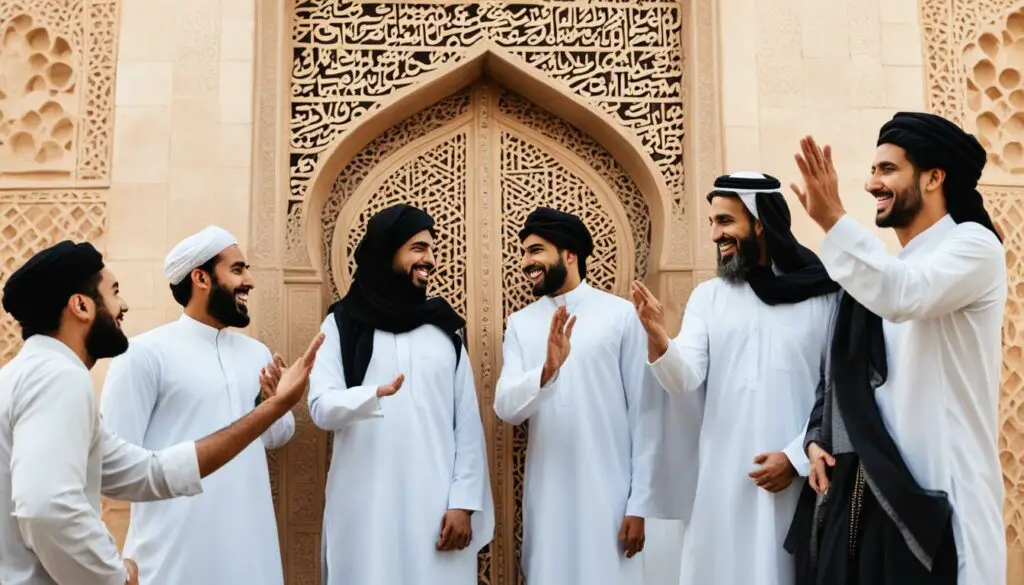
Just like in English, Arabic has a variety of greetings for different occasions. Whether it’s starting a new day, meeting someone in the afternoon, or greeting someone in the evening, Arabic expressions are used to convey warmth and politeness. Here are some common Arabic greetings and phrases:
- Good morning: Sabah al-kheir
- Good afternoon: Masa al-kheir
- Good evening: Masa al-kheir
In addition to time-specific greetings, you can also express pleasure when meeting someone for the first time. A polite way to do this is by saying:
It’s a pleasure to meet you: Min dawaei sururi muqabalatuk
These greetings can be used in both formal and informal settings. Remember, using the appropriate greeting shows respect and helps establish a positive connection.
Responses to Arabic Greetings
The responses to these greetings can vary depending on the time of day and the level of formality. Here are some common responses:
- In the morning: Sabah al-noor
- In the afternoon: Masa al-kheir
- In the evening: Masa al-kheir
These responses acknowledge the greeting and continue the positive interaction.
Arabic Phrases to Talk About Your Career

When engaging in conversations with Arabic speakers, it’s valuable to be able to discuss your career and inquire about theirs. Here are some useful phrases to facilitate job-related conversations:
- “What do you do for a living?” – “Matha ta’amalu liksab ‘ayshik?”
- “Where do you work?” – “Ayna ta’amalu?”
- “What is your occupation?” – “Ma hiya mehnatuk?”
To respond to these questions, you can use phrases like:
“I work as a…” – “Ana a’amalu ka…”
You can then mention your specific profession or job title.
Vocabulary for Job-Related Conversations
Here is a table with some useful vocabulary for discussing careers in Arabic:
| English | Arabic |
|---|---|
| Job | وظيفة |
| Employer | صاحب العمل |
| Employee | موظف |
| Workplace | مكان العمل |
| Salary | راتب |
| Promotion | ترقية |
Knowing these phrases and vocabulary will help you have meaningful conversations about career-related topics in Arabic.
Survival Arabic Phrases for Your Next Trip
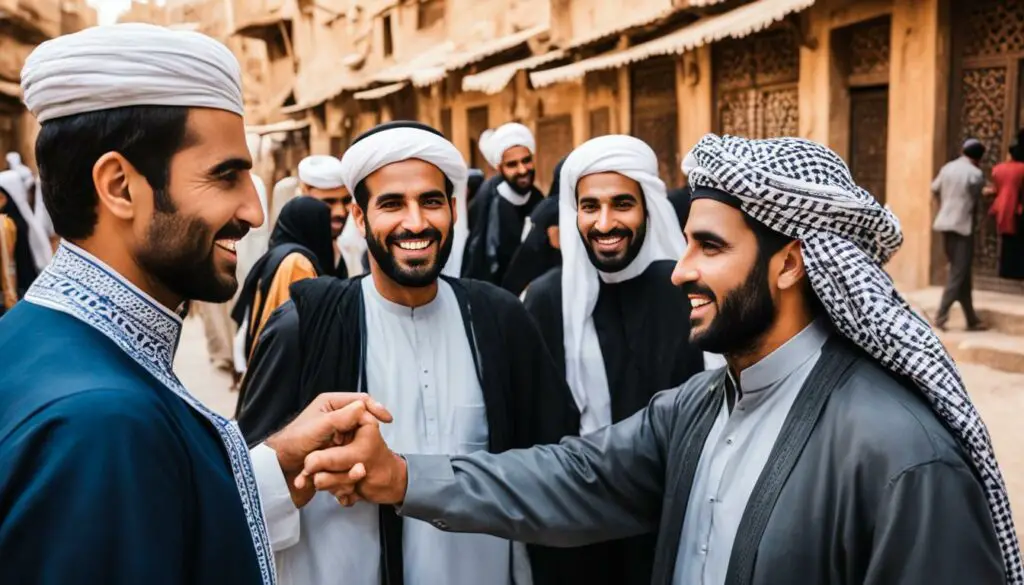
When traveling to an Arabic-speaking country, it is essential to know some survival phrases. These phrases will help you navigate through various situations and make your trip more enjoyable. Whether you need directions, assistance, or simply want to communicate with the locals, these useful Arabic phrases for travelers will come in handy.
“I’m lost” (Ana ta’eh) – Use this phrase when you need help finding your way. Locals will understand that you’re in need of directions and will be more than happy to assist you.
“Do you speak English?” (Hal tatakallam al-ingiliiziyya?) – Use this phrase when you need to communicate in English. It’s always helpful to know if the person you’re talking to can understand and respond in English.
“Where’s the…” (Ayna al…?) – Use this phrase to ask for the location of specific places or things. Whether you’re looking for a restaurant, a bathroom, or a tourist attraction, this phrase will help you get the information you need.
“I can’t find…” (La ajid…) – Use this phrase when you’re having trouble locating something. It could be your hotel, a particular street, or even your belongings. Locals will understand your predicament and try to assist you.
“Can I use your phone? It’s an emergency” (Hal yumkinuni astikhdam hatefik? Innaha halat tari’a) – Use this phrase when you need to borrow someone’s phone in case of an emergency. It’s always helpful to have this phrase ready, just in case.
By familiarizing yourself with these survival phrases, you’ll be able to navigate various situations during your trip and communicate with the locals effectively. Now, let’s take a look at a table summarizing these essential Arabic phrases:
| Phrase | Translation |
|---|---|
| “I’m lost” | Ana ta’eh |
| “Do you speak English?” | Hal tatakallam al-ingiliiziyya? |
| “Where’s the…” | Ayna al…? |
| “I can’t find…” | La ajid… |
| “Can I use your phone? It’s an emergency” | Hal yumkinuni astikhdam hatefik? Innaha halat tari’a |
Arabic Phrases to Express Your Love
Learning how to express love in Arabic can be a beautiful way to connect with someone. The Arabic language offers a variety of romantic phrases that can convey your affection and deepen your bond. Here are some heartfelt expressions:
- “I love you” – Ana ohebuka (male) / ohebuki (female)
- “I miss you” – Aftaqeduka (male) / aftaqeduki (female)
- “You take my breath away” – Kunt ta’khudh anfasi ba’eedan
- “You’re my dream come true” – Kunt hilmi yatahaqq
These expressions of love can be used in romantic relationships, as well as to express affection and admiration towards friends and family members. The poetic nature of the Arabic language adds an extra touch of beauty and depth to these heartfelt phrases.
Finding Inspiration in Arabic Poetry
Arabic poetry has long been celebrated for its romantic themes and expressive verses.
“O loved one, your absence is not bearable, and the heart and eyes cannot overcome it. If a lover misses their beloved, their soul remains restless until they are reunited.”
This beautiful verse showcases the depth of emotions that Arabic poets have captured throughout history.
Arabic words of affection are often poetic and invoke a sense of longing, devotion, and passion. The language provides a rich vocabulary that encompasses all aspects of love and desire, making it the perfect medium to express your deepest emotions.
Whether you are writing a heartfelt letter, sending a message, or speaking directly to someone, incorporating these romantic Arabic phrases can create a lasting impression.
Arabic Phrases for Polite Interactions
Politeness is highly valued in Arabic culture. Here are some essential phrases to use in polite interactions:
- Please – Min fadlek/lo samaht
- Welcome – Ahlan wa sahlan
- Please come in/please help yourself – Tfadel/tfadelee
- Mother of/Father of – Umm…/Abo…
When speaking to elders or strangers, using formal pronouns such as “Hadartik” is also important to show respect.
Politeness in Arabic interactions plays a crucial role in building positive relationships and fostering a harmonious environment.
Polite Arabic Expressions
| Arabic | English Translation |
|---|---|
| Min fadlek/lo samaht | Please |
| Ahlan wa sahlan | Welcome |
| Tfadel/tfadelee | Please come in/please help yourself |
| Umm…/Abo… | Mother of/Father of |
Politeness is integral to Arabic culture, and mastering these phrases will make your interactions more pleasant and respectful. Whether you are visiting an Arabic-speaking country or communicating with Arabic-speaking individuals, using these polite expressions will create a positive impression.
Etiquette and Cultural Considerations
Understanding etiquette and cultural considerations is crucial when interacting with Arabic speakers. Being mindful of cultural norms helps foster positive relationships and avoids misunderstandings. Here are some key points to keep in mind:
Respecting Personal Space and Greetings
In Arabic-speaking countries, personal space is valued. Respect the physical boundaries of others and avoid standing too close. When greeting someone, a handshake is a common gesture among men, while women usually greet each other with kisses on the cheek or a friendly hug.
Showing Respect and Politeness
In Arabic culture, showing respect is essential. Addressing elders or people in positions of authority using proper titles, such as “Sheikh” or “Sayid,” is a sign of respect. Additionally, using formal pronouns like “you” and “your” when addressing others is considered more polite.
Table Manners
When invited to someone’s home for a meal, it’s important to wait for the host to start eating before you begin. Before and after the meal, it’s customary to express gratitude and appreciate the host’s hospitality. Using your right hand for eating is a cultural norm, as the left hand is traditionally reserved for personal hygiene purposes.
Gender Roles and Modesty
Gender roles and modesty are significant in Arabic culture. It is advisable to dress modestly, particularly in public places and religious sites. Women should consider wearing loose-fitting clothes that cover their shoulders and knees. Men should avoid wearing shorts in more conservative settings.
Quote: “Respecting and understanding cultural customs is key to building meaningful connections with Arabic speakers.” – [Your Name]
It’s important to remember that cultural customs can vary across different Arabic-speaking countries. It’s always a good idea to research and familiarize yourself with specific customs and traditions of the country you plan to visit or interact with.
By being aware of cultural considerations and respecting Arabic etiquette, you can navigate social interactions with confidence and create positive connections with Arabic speakers.
Conclusion
In conclusion, learning basic Arabic phrases is a valuable skill that can greatly enhance your travel experiences, social interactions, and business opportunities. By familiarizing yourself with formal and informal greetings, expressing good luck, and engaging in polite conversations, you can navigate the Arabic language with ease.
It is important to remember to be mindful of cultural considerations and etiquette when interacting with Arabic speakers. Showing respect through using proper titles, formal pronouns, and adhering to social customs will go a long way in building positive relationships.
Key takeaways from this Arabic phrase guide include the ability to express good luck, ask for help, talk about your career, survive in a foreign country, express love, and engage in polite interactions. These phrases will not only help you communicate effectively but also show your willingness to learn and respect the Arabic culture.
Whether you’re planning a trip, expanding your professional network, or simply curious about Arabic, taking the time to learn these basic phrases will undoubtedly enrich your experiences and open doors to new connections. Start practicing these phrases today and embrace the beauty of the Arabic language and culture.
FAQ
How do you say good luck in Arabic?
The Arabic phrase for good luck is “Bil-tawfiq.”
What are some Arabic phrases for good luck?
Some Arabic phrases for good luck include “Mabrook” (Congratulations) and “Tawakkal ala Allah” (Trust in God).
How do you wish someone good luck in Arabic?
You can wish someone good luck in Arabic by saying “Blessings and good luck” (Barakat wa tawfiq), or “May luck be with you” (Takun al-buqra ma’ak).
How do you say best of luck in Arabic?
The Arabic phrase for best of luck is “Kul al-tawfiq.”
What are some Arabic words for good luck?
Some Arabic words for good luck include “Baraka” (Blessing), “Tawfiq” (Success), and “Nasib” (Fortune).
How do you wish good luck in Arabic?
You can wish good luck in Arabic by saying “May God grant you success” (Yarzuqk Allah al-tawfiq).
What is the Arabic phrase for good luck in formal situations?
In formal situations, you can say “Bil-tawfiq” (With good luck) to wish someone good luck in Arabic.
How do you express good luck in Arabic informally?
In informal settings, you can say “Mabrook” (Congratulations) or “Tawakkal ala Allah” (Trust in God) to express good luck in Arabic.
How do you say good luck in Arabic for business purposes?
In business situations, you can wish someone good luck in Arabic by saying “Tawfiq wa fanara” (Success and prosperity).
How do you wish someone luck on an exam in Arabic?
To wish someone luck on an exam in Arabic, you can say “Tawakkal ala Allah fil imtihan” (Trust in God in the exam).
What are some other Arabic expressions for good luck?
Other Arabic expressions for good luck include “All the best” (Kol el-kheir) and “May your endeavors be successful” (Yakun mashari’ak mufawwadah).
